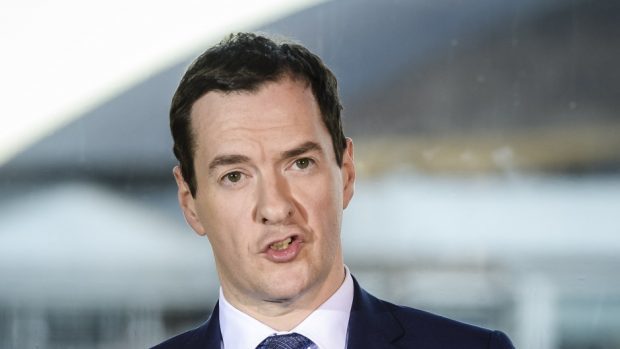The SNP has called on Chancellor George Osborne to freeze fuel duty in the forthcoming Budget amid claims he is planning a “raid”.
Backed by campaign group FairFuelUK, the intervention follows reports the Tory minister is planning to announce an increase to the tax from the Commons despatch box next week.
Stewart Hosie, SNP deputy leader and the party’s economy spokesman at Westminster, said now would be the wrong time for an increase in fuel duty.
He added: “After six years of George Osborne’s failed stewardship the UK economy continues to be in a precarious position and such a move would damage economic recovery.
“Raising the price of petrol and diesel now would be bad for the economy and bad for household budgets.
“A raid on fuel duty by the chancellor would squeeze the pockets of families, those in rural communities that depend on a car, and raise costs for small businesses.
“It would put at risk crucial economic growth and job creation.”
FairFuelUK founder Howard Cox said such a move would be “economic lunacy”, adding: “Fuel duty is already the most punitive in the EU.”
UK fuel duty plus VAT now amounts to approximately 75% of the price of a litre of petrol or diesel, according to the campaign organisation.
Mr Cox said: “FairFuelUK have shown repeatedly that the economic evidence supports a real cut in duty resulting in real fiscal benefits for the UK.
“This evidence is even endorsed by the chancellor’s own department.
“The chancellor must not make a quick cash grab on fuel duty, and we support and are very grateful for the SNP’s efforts to oppose any rise in duty in this year’s Budget.”
A number of Tory and Labour MPs are also believed to be opposed to a rise, including Conservative backbencher Jason McCartney, who has passed a report to Treasury minister Damian Hinds making the case against an increase.
Reports at the weekend quoted an unnamed minister saying people would hardly notice an extra 2p on petrol.
The Treasury does not comment on the Budget in advance.
But in an interview last month, Mr Osborne declined to rule out a rise in fuel duty.
